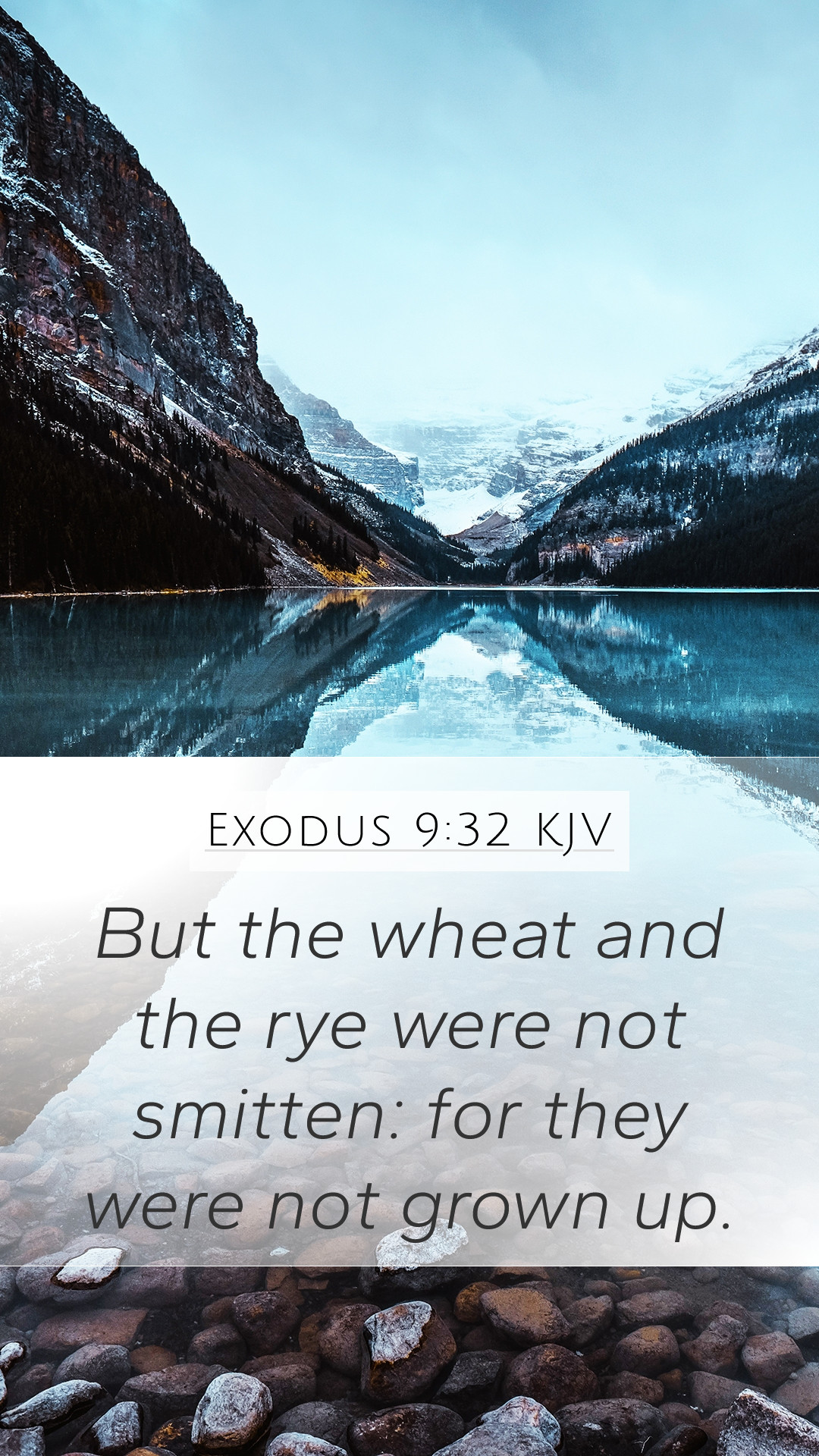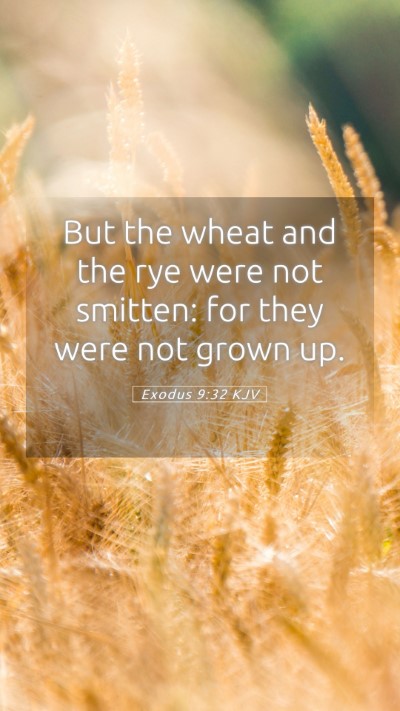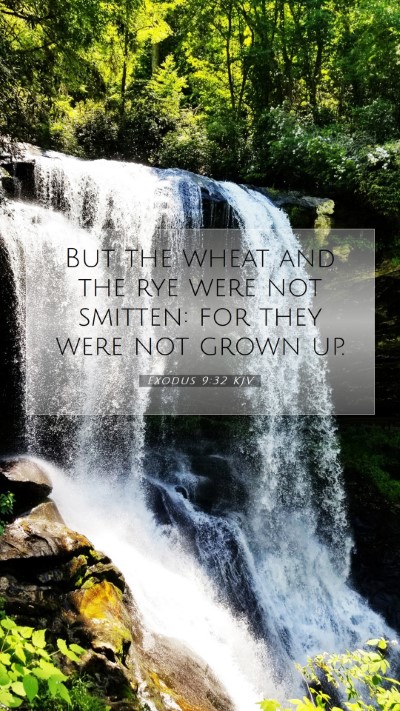Understanding Exodus 9:32 - Bible Verse Commentary
Exodus 9:32 states: "But the wheat and the rye were not smitten: for they were not grown up." This verse addresses the aftermath of one of the plagues that God brought upon Egypt to demonstrate His power and to persuade Pharaoh to release the Israelites from slavery.
The verse serves as an essential component within the narrative of the plagues and offers critical insights into God's sovereignty and mercy. For a deeper understanding, we can look into several public domain commentaries which elaborate on its significance.
Significance of the Verse
The context of this verse falls within the seventh plague, which is the hail that God sent upon Egypt. Previous plagues had already brought devastation and suffering, but this particular plague had a selective effect on the crops, sparing some while destroying others. The distinction made between the crops illustrates several key themes.
1. God's Sovereignty
Matthew Henry discusses how the event signifies God's absolute sovereignty over nature. The fact that the wheat and rye were unharmed while other crops were destroyed reinforced the idea that God controls the natural elements and can direct their effects at will. It stresses His power to protect those who are His, even amidst widespread calamity.
2. Divine Judgment and Mercy
Albert Barnes highlights that while the plagues were indeed a form of divine judgment, God's mercy is evident in this verse by sparing some crops. This selective devastation serves a dual purpose: to showcase His judgment against Egypt's idolatry and to show a form of grace to His people who would later rely on these crops. This interpretation urges readers to reflect on God’s ability to bring judgment while simultaneously providing for His followers.
3. The Incomplete Nature of Judgment
Adam Clarke elaborates on the theme of incomplete judgment, pointing out that the sparing of the wheat and rye symbolizes hope for restoration despite inevitable trials. Clarke suggests that this verse serves to remind believers that even during periods of hardship and divine judgment, a remnant remains that can lead to revival and renewal.
Biblical Exegesis and Historical Context
Understanding Scripture requires contextual analysis. The historical background of God’s deliverance of Israel from Egypt is vital in interpreting this text. God's actions demonstrated His supremacy over the Egyptian gods and showcased the futility of Egypt’s reliance on their deities. The unscathed crops can be seen as God preserving a means for the Israelites' sustenance.
Application to Daily Life
The implications of Exodus 9:32 extend beyond its historical context and invite modern readers to reflect on God’s providence in their own lives. In facing trials and adversities, believers can draw comfort from the knowledge that God sees their struggles and often preserves what is vital for their well-being amidst destruction.
Cross References
- Exodus 10:15 - Describes the devastation of the locust plague.
- Exodus 8:22 - God's differentiation between His people and the Egyptians.
- Isaiah 37:30 - A similar theme of preservation after destruction.
Conclusion
Exodus 9:32 illustrates profound truths regarding God's sovereignty, mercy, and His intricate governance over creation. This analysis sheds light on the question: What does Exodus 9:32 mean? It reinforces the assurance of God's protective grace even during trials and points readers toward understanding the overall narrative of redemption woven throughout the Scriptures.


